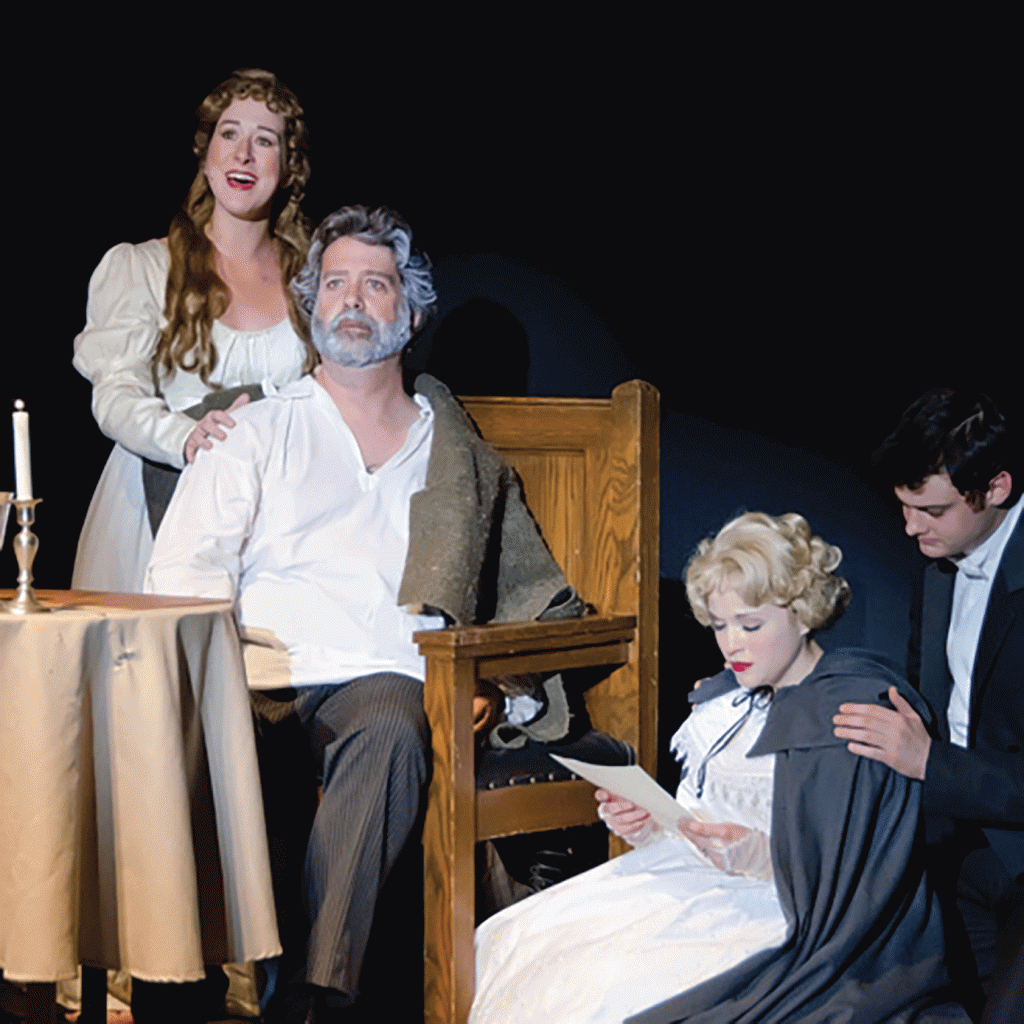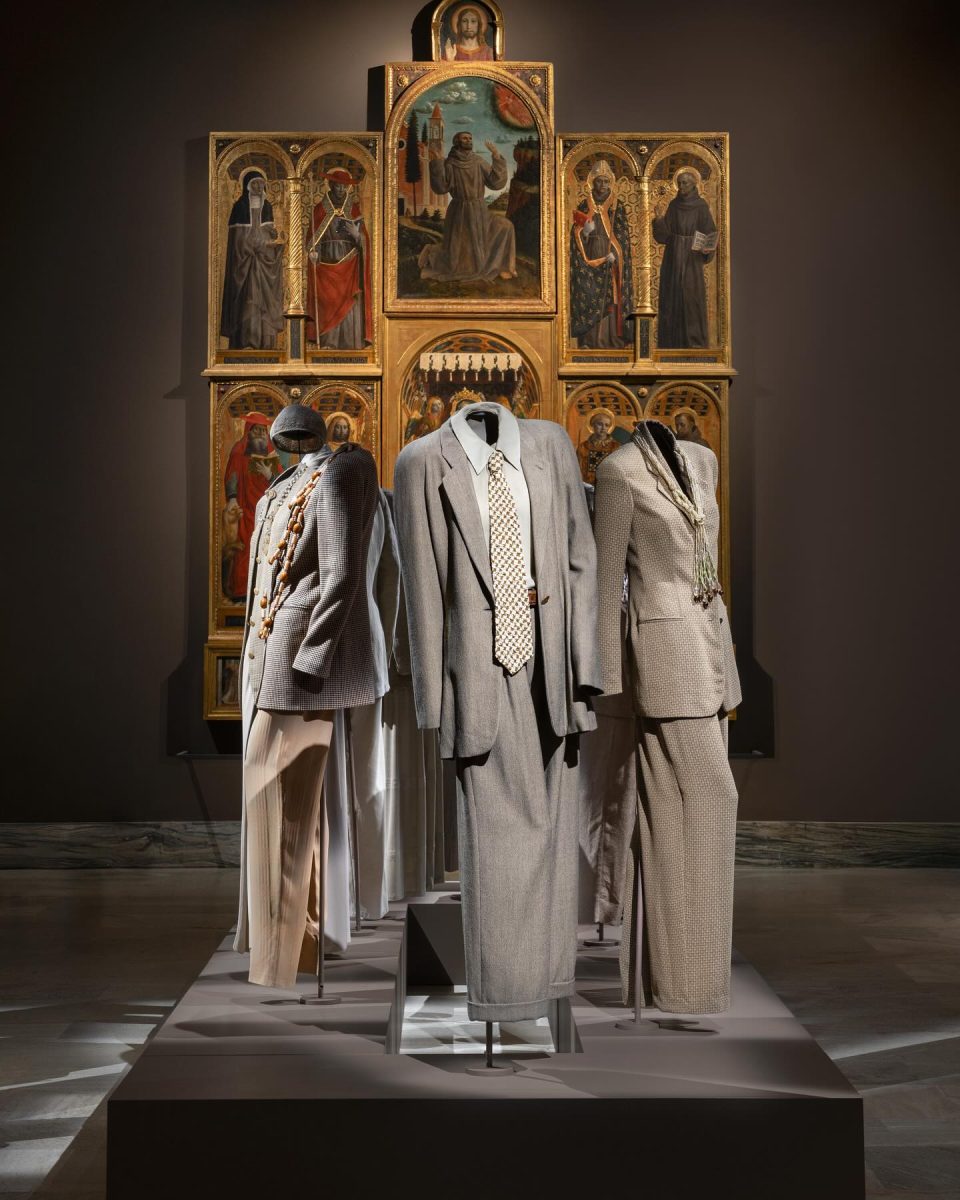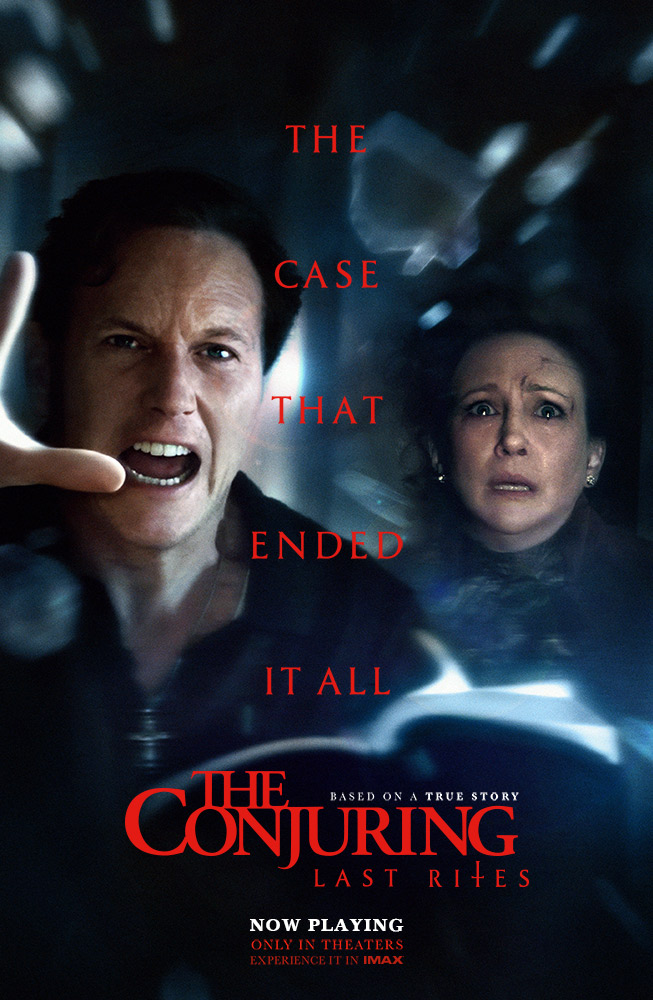The Erie Playhouse’s “Les Miserables” is the best theater production I’ve ever seen in the city of Erie. The plot alone is an especially moving one, but the virtuosity of the players at the Erie Playhouse creates a beautiful story of their own.
Alain Boublil and Claude-Michel Schönberg’s “Les Miserables” is described as a musical, but could be better defined as an opera because every bit of dialogue is set to music. This aspect makes the show especially difficult for the actors because a missed line or a wrong word becomes obvious. Luckily none of those things happened on opening night.
The story is the journey of a prisoner, Jean Valjean, played by the Rev. Shawn Clerkin, in 19th century France just before the revolution. Valjean has just been released after serving 19 years in prison for stealing a loaf of bread. After being freed by Javert (Joe Greulich), Valjean breaks his parole and steals silver from a bishop. However Valjean uses the money he gets from the silver to transform his life into that of a factory owner and becomes mayor. After one of his factory workers Fantine (Kate Amatuzzo) dies, Valjean becomes the guardian of her daughter Cosette (Rebecca Edmunds). And that’s just Act 1. Eventually Valjean finds himself among a group of young French idealists making their last stand for the revolution at a street barricade.
I knew from the first cue of the overture that it was to be a phenomenal show: the conductor and the pianist are the same person. Andrew Rainbow, seated at his piano was conducting singers and instrumentalists while making musical magic come from a black, stringed box.
What sets this production apart from others and wins it the respect that it deserves, as a three-time Tony Award-winning show is the talent contained on the Erie Playhouse stage. Many Erie theater veterans took tiny parts because – I assume – they love the meaning and message of the show. The talent of Clerkin is not surprising, but staggering. Jean Valjean is a role unlike any other and the songs written for this character are heart wrenching and beautiful. Clerkin takes us from his prison cell to his deathbed displaying an undying ferocity for a life fulfilled and passion for true justice in each of his songs.
Because of what has been happening recently in the news, the meaning of this musical is especially poignant. As Jean Valjean expresses his remorse in stealing the bishop’s silver, he says, “This is all I’ve ever known.” It reminds me how much our world can profile and discriminate against those who don’t deserve it. Some castes in our social hierarchy are unable to rise above because of not only the limitations others set for us, but also our own internal boundaries we set. And while being sentenced 19 years for stealing a loaf of bread is only comparable to being wrongly tazed and shot, it’s a problem that’s at least 200 years old. At the same time Javert serves as a metaphor for the blind power that some law enforcement fall victim to.
We can’t help but feel for him in his final song, “Javert’s Suicide.” We better understand how his entire life is governed by the corrupt and unforgiving French law and that his mission is only to do his job well. However, Javert realizes it is his failure to understand compassion – the compassion that Jean Valjean understands so well – that will be his downfall.
The two tearjerkers of the show happen in Fantine’s “I Dreamed a Dream” and “On My Own” from Eponine, played by Christine Carmichael.
Although my mother was luckily never a prostitute who had to cut all of her hair off, I did make a connection with Fantine. She talks about being young and wronged by a lover who left her with a child. Thinking of my own mother who raised me alone, the essence of the song was pretty relatable. A few phrases into it, my eyes couldn’t make out the stage. Kate Amatuzzo had sung the heart-breaking anthem for all single mothers that detailed the awful sacrifices some women must make for their children.
M. and Mme. Thenardier, played by Rich Tryzbiak and Playhouse Executive Director Almitra Clerkin, are the much-needed comical relief of the show. They’re so awfully base and yet they bring a smile to the audience’s face each time they’re on stage. “Master of the House” is the earworm that will sit in your head for the next week. It’s wonderfully catchy and contains the best choreography of the show.
To be completely objective, the show is not without flaw. The typical offenders of community theater were present: microphones that crackle and pop and a cheesy-looking prop here and there.
The stage fights – though intense in emotion – lacked an aspect of believability because no sounds of contact or “naps” were made. The cast had a few discrepancies in which dialect to use. While most conformed to the American Theatre Standard of a vague hint of British to their speech, there were a few outliers who spoke flatly in an American dialect or deviated to Cockney. It’s a thought I have for all productions of “Les Miserables” I see. The story takes place in France, but most actors choose to use a British accent.
This is the encore production of “Les Miserables” that debuted at the Playhouse in 2013. At the time I arrogantly thought that once you’ve seen one production of “Les Mis,” you’ve seen them all. And before I had blinked and come to my senses, the tickets were sold out. This production proves my former self wrong. This production is unique and the most worthwhile show that’s playing in Erie. Don’t be foolish like I was and reserve your tickets soon. Tickets are $13.50 with student ID.
BRIANNA WOODS








